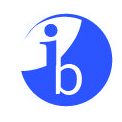Theory of Knowledge (TOK) class, a mandatory core component of the International Baccalaureate Program, is now limited to an in-school course, with the exception of those enrolled in select classes. The after-school TOK class seems to be the source of stress, schedule conflicts and limited program budgeting. Students enrolled in classes such as orchestra, journalism, yearbook or leadership, however, will still have the ability to continue their classes and take TOK after school.
As a sophomore planning to pursue the IB Diploma, I believe this policy is beneficial to IB candidates. I have witnessed many student athletes undergo immense stress from trying to balance after-school TOK and practice time. I have spoken to members of my tennis team who said it is difficult to balance both TOK after-school and practice.
According to the IB office, 57 IB diploma candidates participate in TOK after-school, while the other 83 take the class during the day. Taking an additional class results in an excess amount of stress among students, particularly prevalent during IB exams. While an IB Candidate may be interested in enrolling in multiple sciences, for example, an additional eighth class after school may interfere with homework, studying time and extracurriculars, eventually doing more harm than good. IB Candidates face the ultimate decision choosing between following their interests or obtaining the IB diploma.
Although the option to take TOK after school is no longer available for those not previously enrolled in select classes, Director of Student Services Cindy Blakeley said Marshall plans to implement a new application system next year for rising students with interest in after-school TOK and an extra class such as business or band.
2018-06-08

